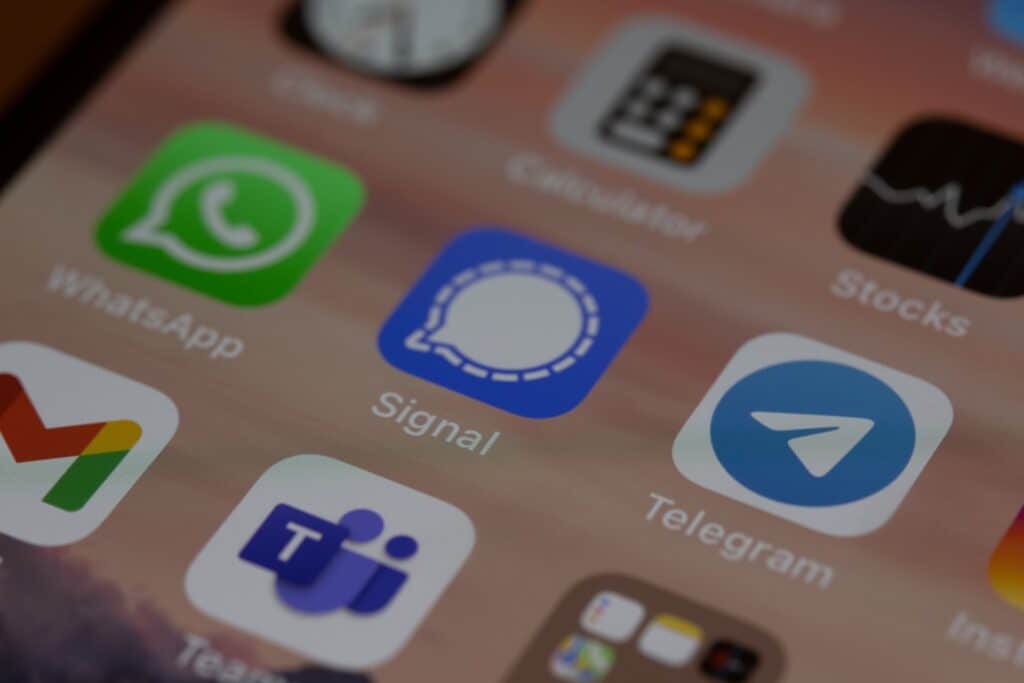Nearly everybody in the modern world uses instant messaging apps daily such as Whatsapp and Telegram. Whether you are sending a note to your parents asking how they are, popping your other half a message requesting they preheat the oven, or catching up with friends on the group chat, you’ll open your preferred virtual messaging app more than a few times per day.
One of the most important things to think about when we are chatting – or doing anything – online is to ensure that your data is safe. This especially rings true if you are discussing any sensitive information in your messages!
So what is better for your data?
Whatsapp is a technology owned by Facebook and was popularised for first using end to end encryption. Theoretically, this means that nobody can hack into your messages – not even Whatsapp themselves. However, a recent Whatsapp update has caused a huge backlash, as people feared that they would start sharing more data with Facebook itself. Facebook owners do eventually intend to operate Facebook, Whatsapp and Instagram under one umbrella app, which could spell bad news for Whatsapp owners.
There was a huge backlash about this controversial change, with hordes of Whatsapp users moving over to Telegram or Signal for their instant messaging needs. Whatsapp has since told people that not much will change, and their data will remain safe.
So what are Whatsapp’s data protection endeavours? In terms of privacy, Whatsapp does offer end to end encryption on all messages sent through the platform. However, users can easily screenshot and forward messages, and messages sent after 10 minutes can only be deleted on one side.
Whatsapp have stated that they, and Facebook, cannot see any private messages or calls, shared locations, or group messages. They have also claimed that they do not share contacts with Facebook and that users can set their messages to automatically disappear.
How does Telegram compare?
Telegram is a popular application across Russia, Central Asia, and Eastern Europe, and is becoming increasingly popular throughout the rest of the world. It is owned by a Russian billionaire called Pavel Durov. It gained a reputation in its early years for being a private app where protestors and dissidents could communicate, due to its ability to host private conversations.
The privacy policy of Telegram is different from Whatsapp. In Telegram, users are not automatically encrypted. They must first enter a ‘secret chat’, which is encrypted. Telegram users can also set a timer on specific messages so they will self-destruct. People using Telegram’s secret chat feature will also get notifications when screenshots are taken and chats cannot be forwarded to other people. This is a useful, although not flawless, way to protect data.
However, it is important to stress that, with Telegram, users have to enter a ‘secret chat’ before anything is end to end encrypted. Plenty of people may not initially think that they need to use these chats, so they will have less security than on offer at Whatsapp.
Ultimately, users who are flocking to Telegram may find themselves no better off when it comes to cyber security. Whatsapp does still offer end to end encryption – which you must opt in to with Telegram – making the former a better option for the time being.
UPDATE: WhatsApp will restrict users from May 15 if they do not agree to the new terms

Do you have an technology or data protection matter that you’d like to discuss with the team? Alston Asquith have offices in London and Hertfordshire and can arrange a call to provide some initial advice.
We pride ourselves on our relationship with our clients as well as the service we provide. View some of our feedback on Trustpilot.
Visit our contact page to find out how we can help.
